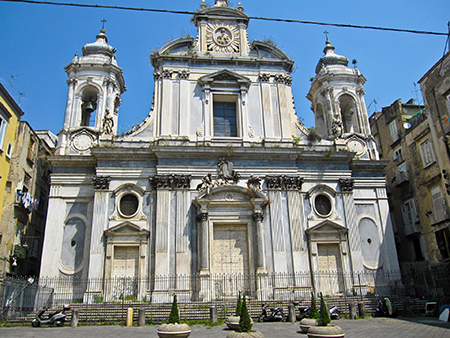The production ‘Ġawhar Misjub – an Operatic Banquet’ includes operatic excerpts by different Maltese composers highlighting Malta’s rich heritage in operatic music. In this article one can learn more about the earliest of operatic composers – Giuseppe Arena ( 1707-1784)
Giuseppe Arena was born in Valletta in 1707. Around 1724 he began furthering his musical studies in Naples at the Conservatorio dei Poveri di Gesu Cristo. Arena’s musical talent was immediately recognised and he was also Francesco Durante’s assistant ( a major Italian composer of the time). Although information regarding his life in Italy is quite unknown, we know that prominent singers such as soprano Francesca Cuzzoni and Castrato Anton Hubert, nicknamed Porporino, eagerly accepted to sing his music.
Around 1738, he premiered six of his operas. These include his first opera Achille in Sciro and a secular cantata named Il Vello d’Oro, both premiered in Rome. Other works included Tigrane, Artaserse, La Clemenza di Tito, Alessandro in Persia, and his groundbreaking comic opera Il Vecchio Deluso. Arena was always recognised as a Neapolitan composer and not as a Maltese one however in the late 19th century, the certificate of his birth stated that he was born in Malta.

Achille in Sciro and Artasersere are two operas written by the famous 18th century librettist Pietro Metastasio (1698-1782). Metastasio was one of the prominent opera seria librettists and composers such as Hasse, Vinci, Gluck, Handel and Mozart all made use of his literature. Most of the plot lines revolve around historic Kings, Emperors or heroes, such as the story of the Greek hero Achilles and the Persian King Artaxerxes.
Arena’s first opera written in 1738 is an epitome of the Neapolitan Baroque style of writing. The plot line of Achille in Sciro is based on Achilles who dressed up as a girl to be able to enter the court of King Skyros and whilst being there he fell in love with one of the princesses. This part of Achille’s story seems to be omitted from Homer’s Iliad but is later recorded by the Roman poet Statius.
In 1741 Arena wrote the three-act opera Artaserse on the famous libretto which deals with the Persian King and the son of Serse the first. This opera dwells on love, betrayal and antagonistic events. In the aria Se un amor tiranno, Mandane (one of the characters) cannot believe that her beloved turned out to be such a cruel man. Arena’s appoggiaturas and trills seem to suggest the tormented lover and they almost mirror her sobs. In the duet Tu vuoi ch’io vivo o cara both characters are pleading, creating a melody as if by question and answer.
‘Ġawhar Misjub – An Operatic Banquet’ will premier on the 27th of May 8 pm at St.Agatha Auditorium , Rabat.
Book your seats now for FREE by following this link  or scanning the QR code beneath.
or scanning the QR code beneath.
